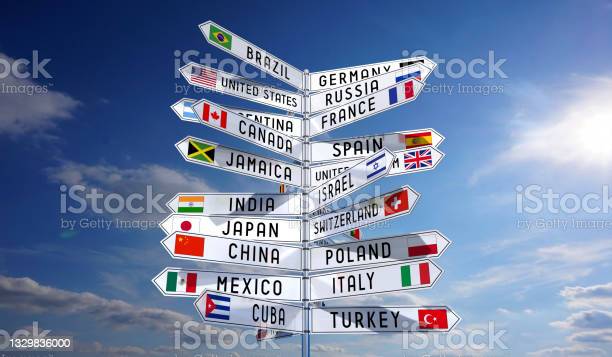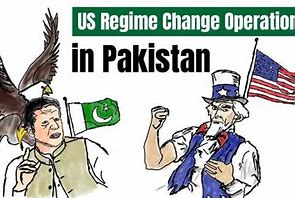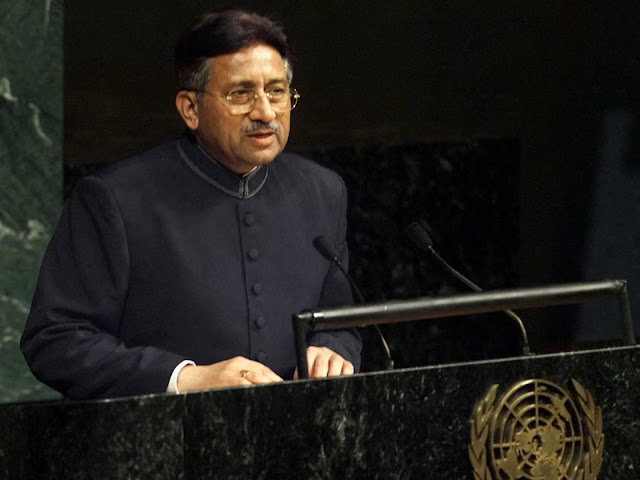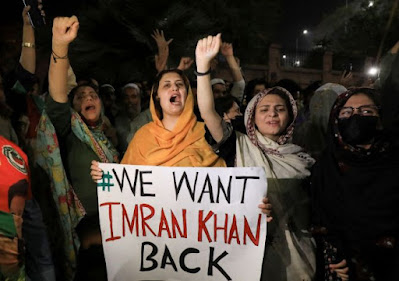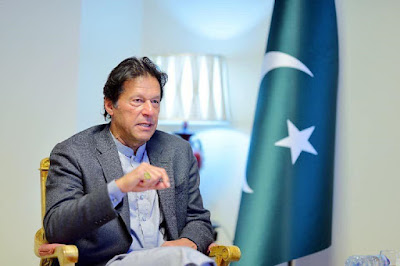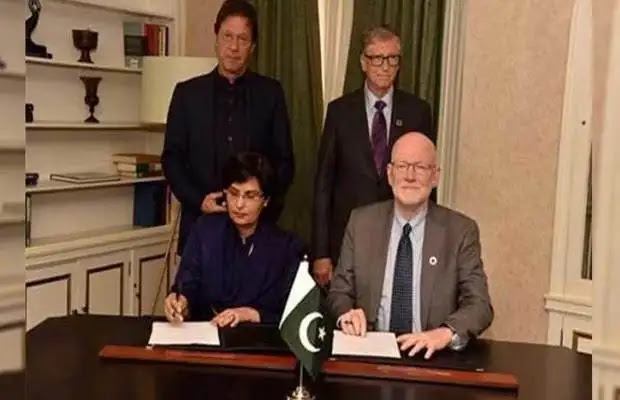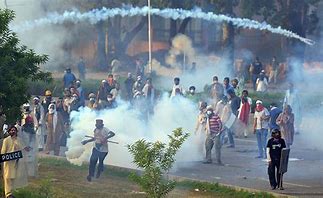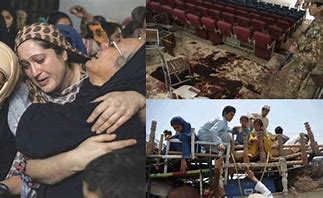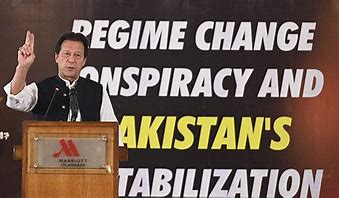In a rapidly changing world, the rising tensions between China and America have become a topic of tremendous concern. The new polarization of the world order is not only a threat to the strategic alliances of these two superpowers but also to global peace itself. This article explores the various aspects of this escalating tension, its potential consequences, and the responsibilities that powerful nations must bear to prevent the outbreak of a catastrophic war.
China-America Power Struggle
At the heart of the tension lies a struggle for dominance on the global stage. Both China and America compete for economic, political, and military supremacy. This power struggle has far-reaching implications, affecting not just these two nations but the entire world.
Ukraine War and Global Concerns
America’s support for Ukraine in its conflict with Russia has added fuel to the fire. While it’s essential to support the principles of sovereignty and democracy, such involvements can have unintended consequences. The Ukraine war has raised concerns about global peace, as it highlights the complexities of modern international relations.
America’s History of Military Interventions
The American invasion of various wars in the recent past, from Iraq to Afghanistan, has left the world wary. The repercussions of these interventions are still felt today, with regions destabilized and millions of lives affected. This history contributes to global apprehension regarding America’s military actions.
Space Conflict: January 2023
Even outer space has become a battleground for these two giants. In January 2023, the world watched as America and China engaged in a conflict in space, signalling their competition for dominance beyond our planet. Such events raise the question of whether this rivalry could escalate into a full-blown war.
The Fragility of Global Peace
Interconnectedness of Nations
In today’s interconnected world, the peace of one nation is intrinsically linked to the peace of others. Powerful nations must recognize that any engagement or invasion of war can have devastating consequences that reverberate globally. The impact is not limited to military operations but extends to the daily lives of every individual on Earth.
The High Cost of War
War carries a multitude of harmful consequences. One immediate concern is the skyrocketing cost of essential items, such as food, due to conflicts like the Russia-Ukraine War. This inflation hits vulnerable populations the hardest and exacerbates global inequality.
Broader Implications of Conflict
Beyond economic hardships, war results in loss of life, displacement of communities, destruction of infrastructure, and lasting trauma. The scars of war linger for generations, making the prevention of armed conflicts a paramount duty for the international community.
Here is a list and explanation of some of the key consequences of war:
1. Loss of Human Lives:
War leads to the tragic loss of human lives. Soldiers and civilians alike are affected, resulting in a devastating death toll. This loss includes not only combatants but also innocent bystanders, including women and children.
- In the initial months following the atomic bombings, data from the Radiation Effects Research Foundation, a collaborative organization between Japan and the United States, suggests that approximately 90,000 to 166,000 individuals lost their lives in Hiroshima, with an additional 60,000 to 80,000 fatalities recorded in Nagasaki.
Here are the Iraq War casualties as reported by Reuters and the UK Ministry of Defence in 2003:
United States:
- 132 military personnel were killed, including 21 non-combat deaths.
- 495 military personnel were injured.
United Kingdom:
- 32 military personnel were killed.
- 22 non-combat deaths.
- 74 military personnel were injured.
Iraqi Military:
- Approximately 2,320 military personnel casualties (according to coalition estimates).
- 9,000 Iraqi military personnel were captured as prisoners of war.
Iraqi Civilians:
- 1,252 civilians were killed (as estimated by Iraq).
- 5,103 civilians were injured (as estimated by Iraq).
- 1,878 to 2,325 civilians were killed (according to the Iraq Body Count organization estimate).
Journalists:
- 13 journalists were killed.
- 2 journalists were injured.
- 2 journalists were reported as missing.
British Military Casualties (Source: UK Ministry of Defence):
- 32 UK military personnel were identified as dead, including one due to natural causes.
- 22 UK military personnel were recorded as non-combat deaths.
The conflict in Afghanistan has inflicted a profound human toll. According to research conducted by Brown University:
- It has resulted in the loss of over 3,500 Allied soldiers, including 2,448 American service members, with more than 20,000 Americans sustaining injuries.
- Approximately 69,000 Afghan security forces have also lost their lives in the course of the war.
- Tragically, the conflict has claimed the lives of approximately 51,000 civilians and an additional 51,000 militants.
- The overall human cost in Afghanistan is staggering, with an estimated 176,000 people affected. This includes 46,319 civilians, 69,095 military and police personnel, and at least 52,893 opposition fighters.
- Among the casualties, over 2,300 U.S. servicemen and women have made the ultimate sacrifice, with more than 20,000 sustaining injuries. Additionally, the conflict has resulted in the loss of over 450 British soldiers and many more from various nationalities.
2. Physical and Psychological Trauma:
Survivors of war often suffer from physical injuries, ranging from minor wounds to severe disabilities. Additionally, the psychological trauma caused by war can lead to conditions like post-traumatic stress disorder (PTSD) and long-lasting mental health issues. In the case of individuals who were exposed to radiation before birth, during the Hiroshima and Nagasaki bombings specifically during their time in the womb, research studies, including one conducted by E. Nakashima in 1994, have revealed several significant effects. These include an increase in instances of smaller head size and mental disabilities, as well as hindrances in physical growth. Interestingly, it was observed that those exposed in utero experienced a comparatively lower rise in cancer rates compared to survivors who were children at the time of the attack.
3. Displacement and Refugees:
War forces people to flee their homes in search of safety, leading to large populations of refugees and internally displaced persons (IDPs). These individuals face precarious living conditions, lack of necessities, and the challenges of starting anew. Neighboring countries are providing refuge to 8.2 million Afghan individuals, with more than 1.6 million of them seeking shelter since 2021.
4. Destruction of Infrastructure:
War ravages infrastructure, including roads, bridges, schools, hospitals, and homes. The destruction hampers economic recovery and disrupts essential services, such as healthcare and education.
5. Economic Consequences:
The economic repercussions of war are significant. It drains national resources, disrupts trade, and leads to inflation. Rebuilding after a conflict can be a monumental task, requiring massive investments.
6. Environmental Damage:
War can have detrimental effects on the environment. Pollution from bombings and warfare materials can contaminate soil and water sources. Additionally, the displacement of people can lead to deforestation and land degradation.
7. Breakdown of Social Structures:
War disrupts the social fabric of communities and nations. It can lead to the breakdown of social order, erosion of trust among individuals, and the emergence of criminal activities.
8. Humanitarian Crises:
Wars often result in humanitarian crises. Access to food, clean water, and healthcare becomes limited, leading to widespread suffering and the risk of famine and disease outbreaks.
9. Generational Impact:
The effects of war can linger for generations. Children growing up in conflict zones may experience disrupted education, malnutrition, and exposure to violence, affecting their prospects.
10. Political Instability:
War can create political instability, leading to power vacuums, the rise of extremist groups, and ongoing conflict even after the cessation of hostilities.
11. Global Economic Impact:
International trade and financial markets can be adversely affected by war. Confidence in the stability of regions experiencing conflict can lead to economic uncertainty.
12. Diplomatic and International Relations Strain:
War often strains diplomatic relations between nations, making it challenging to find peaceful resolutions to conflicts. It can also lead to long-lasting animosities between countries.
13. Ethnic and Cultural Divisions:
War can exacerbate existing ethnic and cultural divisions within a nation. It can lead to the targeting of minority groups and the destruction of cultural heritage.
14. Arms Race and Military Spending:
The threat of war can fuel an arms race, diverting valuable resources that could otherwise be used for development and social welfare programs.
15. Long-Term Economic Burden:
The cost of war extends long after the conflict ends. Nations often bear the burden of debt incurred during wartime, hindering economic growth for years to come.
In conclusion, war’s consequences are far-reaching and encompass not only the immediate physical and psychological toll but also the long-term impact on societies, economies, and global relations. It underscores the critical importance of diplomatic efforts and peaceful conflict resolution to prevent the devastating effects of armed conflicts.
The Responsibility of Powerful Nations
Diplomacy and Conflict Resolution
Powerful nations have a responsibility to prioritize diplomacy and peaceful conflict resolution. Dialogue and negotiation should always be the first resort to resolving disputes, as war should only be considered when all other avenues have been exhausted.
Collective Security
International organizations, such as the United Nations, play a crucial role in promoting global peace and security. Powerful nations should actively support and engage in these forums to find peaceful solutions to conflicts.
Promoting Cooperation
Instead of competing for dominance, powerful nations should work together on global challenges like climate change, poverty, and pandemics. Cooperation can help build trust and reduce the likelihood of conflicts.
Setting an Example
Powerful nations can set an example for the rest of the world by championing peace, human rights, and the rule of law. By adhering to these principles, they can inspire others to do the same.
Conclusion
The rising tensions between China and America are indeed a cause for concern, as they pose a significant threat to global peace. The consequences of a potential war would be dire, affecting not just these two nations but the entire world. Powerful nations must recognize their responsibility to prevent armed conflicts and prioritize diplomacy and cooperation over confrontation.
Frequently Asked Questions
- What are the main reasons behind the tensions between China and America?
The tensions arise from a complex interplay of factors, including power competition, geopolitical interests, and historical conflicts.
- How does the conflict in Ukraine impact global peace?
The Ukraine conflict highlights the challenges of modern international relations and raises concerns about the potential consequences for global stability.
- Why should powerful nations prioritize diplomacy over war?
Diplomacy ensures that conflicts are resolved peacefully, avoiding the devastating consequences of armed warfare.
- What role do international organizations play in preventing conflicts?
Organizations like the United Nations facilitate diplomatic solutions and promote collective security to prevent armed conflicts.
- How can individuals contribute to global peace efforts?
Individuals can raise awareness, support peaceful initiatives, and hold their governments accountable for pursuing peaceful resolutions to conflicts.

